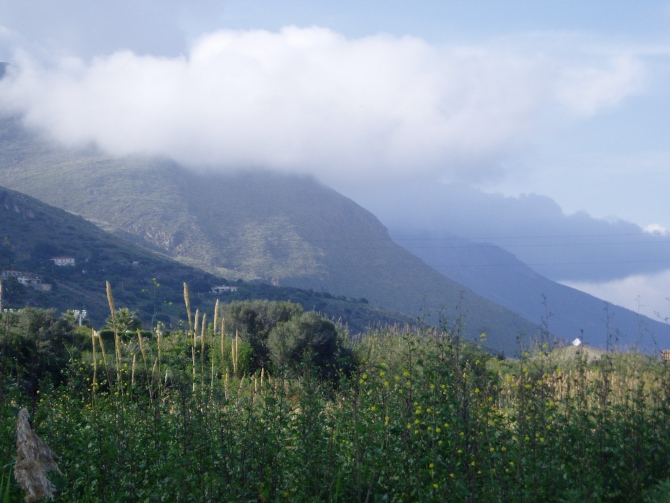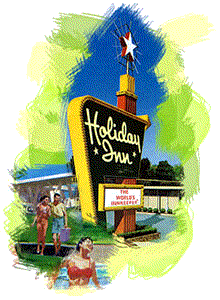VIEW
FROM THE DESK
 |
We have passed the solstice now and our
Westcountry lanes are bathed in the mingled scents of meadowsweet and
honeysuckle. The weather has been a little disappointing of late, but there are
still two months of summer left here in our hemisphere so we can still hope for
some golden days.
|
|
Meanwhile, on the other side of the world, those of my
friends who have had the good sense to adjust their cultural rituals to fit
their climate are getting ready for their ‘Christmas dinner’ feasts.
This newsletter is coming to you much later
than intended, for three reasons. The first is that Sky and I took a longer
than usual trip this spring. For those of you who haven’t seen the report of
our journey around Sicily, here is the link.
The second reason is that since we came
back I have been busy with the publication of my new book on downshifting and
with the Summer issue of the GreenSpirit Journal, which it was my turn to edit.
And the third reason is that for the first time I can remember there were very few submissions for this newsletter. I am not sure why this, as I know
there are a lot of excellent writers in our Elderwoman community. But I suspect
it is because we all find our attention pulled in so many different ways
nowadays. There is an incredible amount of traffic on the information
superhighway, lots of it fascinating, and it is hard to be creative when you
are reeling from ‘input overload.’ Anyway, next time I shall send out reminders
on Elderwomanspace and hope to get more material from other people..
In the meantime, here are a couple of my
own pieces which I hope you will find thought-provoking, and some links to stories
from elsewhere that I thought were interesting.
Blessings to you all, my elderwoman
friends, wherever you are,
Marian
|
 |
FEATURE ARTICLES
On
Being Available

|
We were
walking in
single file because the trail was narrow at that point and wound
uphill,
snaking and turning amongst the trees. This was old-growth, temperate
rainforest,
never logged, precious and beautiful. It was a Sunday afternoon in
summer and
the sun was shining but down here, among the trees, it was cool and
damp. I
remember the peacefulness of it, the all-pervasive scent of eucalyptus,
the
lacy green of tree ferns and the fact that my young daughter, walking a
few
yards in front of me, was wearing a red shirt that appeared and
disappeared
before me like a flag as we went around the corners.
My legs were weary
from the uphill climb, but it was a good, healthy weariness: the sort
that
comes from muscles being used the way they were meant to be
used. And,
as often happens when you walk, the workaday
world had finally
|
begun to
fall away and the steady rhythm of placing one foot
after another was gradually coaxing my mind out of its habitual
busyness into a
state of calm reverie.
Then something bizarre happened. As I
turned a sharp corner, I glanced down to my left. And there, nestled
among the
exposed roots of an ancient, twisted myrtle beech, I saw a
cream coloured telephone—the old-fashioned kind, with a dial
on the front, because this story happened in 1977. It was ringing, a
shrill,
intrusive ring that shattered the stillness of the forest. I picked up
the
receiver. The call, of course, was for me.

The coded messages from our night dreams
can be hard to decipher sometimes, but the dreams and visions that come
to us
during daylight hours are far less subtle and much easier to
understand. I knew
immediately that this one was a warning to me about the stressfulness
of my job
and the importance of taking time out. What I didn’t realize at the
time,
however, was how significant that image of the ringing telephone under
the tree
really was or what it said about my basic nature. Neither had I any
idea how
deeply it would etch itself in memory so that now, more than three
decades
later, it remains as fresh and clear as if it had happened yesterday.
Now, every
time I am out and about amongst
people and someone’s cell phone rings, I am reminded of that phone I
‘saw’ under
the tree and I shiver with the thought that had cell phones been
invented forty
years earlier I might never have had a peaceful, uninterruptable
weekend. I
might never have known the joy of being out in the countryside, alone
or with
my loved ones, beyond the reach of the world’s needy demands on my time
and
attention. More than likely I would have collapsed under the stress of
it all.
These days, most people who are the age I
was in 1977 have embraced modern, electronic technology in its
entirety. They
have computers and iPods and iPads and smart phones and so much
gadgetry in
their lives and dangling from their earbuds that I sometimes wonder how
they
manage not to get strangled, both literally and figuratively, in its
wires.
Amongst us older folk, however, there
seems to be more of a love/hate thing happening around all this. I have
three
friends—one a year younger than me at nearly 74, one in her eighties
and one in
her nineties—who adamantly refuse to have anything to do with computers
or the
Internet. They still write letters by hand and post them and when they
want to
find something out they go to the library to look it up. So completely
have I
incorporated this particular technology into my life that it seems
amazing,
now, to recall a
life without Google. What’s
more, the Internet has made it possible for me to live in a wonderful,
peaceful
place in the depths of the countryside and yet feel fully connected
with others
all around the globe. So I love it.
But for me, just as for these Luddite
friends of mine, there is a point beyond which I cannot and will not
go. I do
have a cell phone. And when I go away somewhere I take it with me. I
even take
it with me when I go hiking, for what if I fell and broke a bone? My
son-in-law, who once fell down a cliff, owes his life to someone’s cell
phone,
and I am grateful that we have this technology. But the technology is
here to
serve us, not the other way around. So when I am travelling, the most I
will do
is switch that phone on every few hours to check for text messages. The
rest of
the time it remains firmly switched off. And that is the way it will
always be.
For an introvert like me, there has to be a limit to my availability.
That is
where I have drawn my line in the
sand.. If you want to speak to me and I am out in the woods, you are
out of
luck. But feel free to send me an email. I’ll answer it…eventually.

Soul Stages
There
are
several books that have had a big impact on my thinking in these last
couple of
years and one of them is Nature
and the Human Soul
by the depth psychologist and wilderness guide
Bill Plotkin. The blurb for this
book describes it as “…a visionary ecopsychology
of human development that reveals how fully and creatively we can
mature when
soul and wild nature guide us…a model for a human life span rooted in
the
cycles and qualities of the natural world, a blueprint for individual
development that ultimately yields a strategy for cultural
transformation.”
It
is a full
book rich with metaphor, a visionary book and one that took the author
many
years to write. And as someone who has always been interested in
theories of human
development (and particularly in our relationship with the rest of
Nature), I
found it fascinating. As one inevitably does with books of this kind, I
found
myself looking back at the trajectory of my own life to see where it
matched
and how well I could relate to the stages.
Like
other
life stage theorists, Plotkin emphasizes that there is no direct
correlation
between life stage and chronological age. Let’s face it, we all know
people who
are 50 going on 15 and young folk who show a maturity way beyond the
norm. The
important thing about stages is the order in which they happen and the
fact
that one invariably leads to the next.
Especially
interesting for me, of course, both personally now that I am in my
seventies
and also because of my interest in elderhood, were the later stages.
Stage
6, he refers to as ‘The Artisan in
the Wild Orchard.’ This the time of your mature adult life when you
have become
so good at what you do that it seems to happen effortlessly. “There are moments” he says, “ when you feel like a wizard, a magician, a
sorcerer or a
sorceress. You astonish
yourself and yet, at the same time, you know you can personally take
almost no
credit for what flows through you. You are an instrument, an agent for
the
Mystery or the Muse. Perhaps the most essential talent you can claim as
personally yours is the ability to get out of the way of your own soul.
That’s
when you feel most alive. At your best moments, it doesn’t even feel
like
you’re making choices. You’re simply assenting to what wants to emerge
into the
world through you. Your soulwork requires increasingly less effort.
You’re in
the flow.”
Stage 7, which is the beginning of
elderhood, he calls ‘The Master in the Grove of Elders.’ This when “…the hub of your life…has moved from the
depths of your own soul to the depths of the community soul, from the
innovative performance of your art to the integrity and well-being of
the world.”
It is in this early elderhood stage that you find yourself gradually
moving
from a life of ‘doing’ to a life of simply ‘being’, Joanna Macey likens
this to
becoming a seed crystal. Just by being you, you cause subtle changes in
those
around you.
Once that shift from doing to being is
fully complete, you are in the final stage, late elderhood, which
Plotkin calls’
The Sage in the Mountain Cave.’
These descriptions ring very true for me. I
have been aware, as the years passed, how my centre of gravity
gradually
shifted from care of my home and family to service in the wider
community and
ultimately to a feeling of wanting to care for our beautiful planet.
But the
doing/being shift is the trickier one.
Right now, I sometimes feel like a kelp
plant, moving and swaying with the push and pull of my soul’s tide. I
feel the currents
of change and I am also aware of the joy and satisfaction of being me
and doing
what I do. Sometimes it is hard to be still, and yet at other times
movement
makes me weary. There is still a lot of doing and yet I am drawn, more
and
more, towards the joy of just being. In
some ways this feels a bit like adolescence: a
pendulum swing between
two very different states. But now, with the eyes of experience and
understanding I am not confused the way I was at 14, nor even the way I
was at
the beginning of menopause. Now I know pretty much where I am going,
even if
where I am going is into new territory and even though I don’t know how
I shall
feel when I find myself living there. I know that I can relax and let
be and
all will be well..
I am not sure how old Bill Plotkin is. But
although his hair is turning grey he admits, in his book, that cannot
yet call
himself an elder. So in order to write about these later stages of
human
development, he spent a lot of time
doing in depth interviews with two people who to him (and also to me)
epitomised the successful achievement of conscious elderhood: Joanna
Macey and
Thomas Berry. This was a wise decision and a great beginning. However, the full charting of this soul
territory, the full exploration of these inner, spiritual aspects of elderhood, is a task that remains
wide open to all of us.
As I wrote in Elderwoman,
a century ago very few people could expect to live much
beyond their fifties and elderhood was brief. This is new land we have
created,
just as the people of Holland have reclaimed thousands of hectares of
fertile
farmland from the ocean. It is up to us to write the story and to make
the maps
that will guide our daughters in the years to come.

Back to top
REPORTS/NEWS/BITS AND PIECES
Offline
Reading
On June 1st, at Watkins Bookshop in London, my publisher, O Books, launched the first five volumes in their new 'Made Easy' series. These are small, introductory books on a wide range of topics and the aim is to publish at least a hundred of them.
The topic that I chose was one very dear to my heart. My book is called Downshifting Made Easy: How to plan for your planet-friendly future.
Many
of you who are members of Elderwomanspace or Facebook friends of mine
will already have seen a link to the video of the short talk I gave at
the launch, but for those who didn't see it, here it is again.
http://www.youtube.com/watch?v=Hx_24BYTWVQ
|

|
Oh and I nearly forgot to mention that there's a discount on the e-book version of my novel, The Bird Menders. You can get it for $2.40 until the end of July.
See http://www.smashwords.com/books/view/36504 The Coupon Code is DF64U |
Online
Reading
'We Age from Our First Breath' by Lewis Richmond
http://www.omplace.com/articles/From_First_Breath.html
------- ------- ------- A long
– but excellent – article from Orion Magazine about ageing in wild animals
http://www.orionmagazine.org/index.php/articles/article/6251
------- ------- ------- Michaela Oldfield writes:
"I've come across two web resources lately that I thought you might like to
know about, if they're not already on your radar.
I don't have any particular insight into the people behind them but the
first is a person who clearly appreciates the style of older New Yorkers - http://advancedstyle.blogspot.com/
Thanks, Michaela. These are both great sites. I especially enjoyed the style one and have been back to it a number of times.
------- ------- -------
| The good news is that death rates for many major diseases - HIV, stroke, heart
disease, prostate cancer, and breast cancer - are declining. Sadly, we can't yet
say the same about Alzheimer's. This year, the first of the Boomer Generation
turns 65. To bring urgently-needed attention to the risk facing the Boomers,
Alzheimer's Association recently released a groundbreaking study 'Generation
Alzheimer's: The Defining Disease of the Baby Boomers.' |
 |
We'd love your
help in getting the word out about the important information
in Generation Alzheimer's, so we can make sure the public understands what can
be done to conquer this devastating disease. I've put together a microsite,
making it really easy to grab banners, video, text -- anything you think you can
use -- so we can make sure as many people as possible have access to this
information: http://alz-news.org
Please let me know if
you have any questions and are able to post or tweet about this. I'd love to
know about it if you do, so please send me the link!
Thank you so
much,
Diane
--
Diane Wright
dianew@alz-news.org
------- ------- ------- Online Watching "Old on Purpose" Trailer - http://vimeo.com/22080715
|
 |










